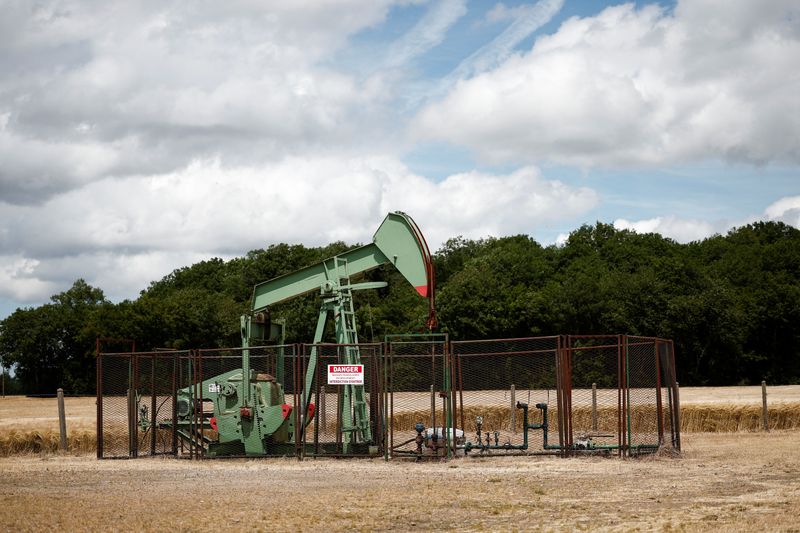By Scott DiSavino
NEW YORK (Reuters) -Oil prices climbed about 2% on Friday to settle at a three-week high, on expectations that additional sanctions on Russia and Iran could tighten supplies and that lower interest rates in Europe and the U.S. could boost fuel demand.
Brent futures rose $1.08, or 1.5%, to settle at $74.49 a barrel. U.S. West Texas Intermediate crude rose $1.27, or 1.8%, to settle at $71.29.
That was Brent's highest close since Nov. 22 and put the contract up 5% for the week. WTI posted a 6% gain for the week and closed at its highest since Nov. 7.
"This strength is being driven by ... expectations of tighter sanctions against Russia and Iran, more supportive Chinese economic guidance, Mideast political havoc and prospects for a Fed (U.S. Federal Reserve) rate cut next week," analysts at energy advisory firm Ritterbusch and Associates said in a note.
European Union ambassadors agreed to impose a 15th package of sanctions on Russia this week over its war against Ukraine, targeting its shadow tanker fleet. The U.S. is considering similar moves.
Britain, France and Germany told the United Nations Security Council they were ready if necessary to trigger a so-called "snap back" of all international sanctions on Iran to prevent the country from acquiring nuclear weapons.
Chinese data this week showed crude imports in the world's top importer grew annually in November for the first time in seven months. They are set to stay elevated into early 2025 as refiners opt to lift more supply from top exporter Saudi Arabia, drawn by lower prices, while independent refiners rush to use their quota.
The International Energy Agency (IEA) increased its forecast for 2025 global oil demand growth to 1.1 million barrels per day (bpd) from 990,000 bpd last month, citing China's stimulus measures.
New bank lending in China rose by far less than expected in November, highlighting weak credit demand in the world's second-largest economy as policymakers pledge to roll out more stimulus measures.
OIL SUPPLY AND DEMAND
The IEA forecast an oil surplus for next year, when non-OPEC+ nations are set to boost supply by about 1.5 million bpd, driven by Argentina, Brazil, Canada, Guyana and the U.S.
OPEC+ includes the Organization of the Petroleum Exporting Countries (OPEC) and allies like Russia.
The United Arab Emirates, an OPEC member, plans to reduce oil shipments early next year as OPEC+ seeks tighter discipline, according to Bloomberg.
The price of crude sold to China from Iran, another OPEC member, rose to the highest in years as U.S. sanctions have tightened shipping capacity and boosted logistics costs. U.S. President-elect Donald Trump's incoming administration is expected to ramp up pressure on Iran.
Investors are also betting the Fed will cut U.S. rates next week, with further reductions next year, after data showed weekly claims for unemployment insurance unexpectedly rose.
U.S. import prices barely rose in November as rising food and fuel costs were largely offset by decreases elsewhere, thanks to a strong dollar.

Four European Central Bank policymakers backed further interest rate cuts provided inflation settles at the bank's 2%-goal as expected.
Lower interest rates can boost economic growth and demand for oil.